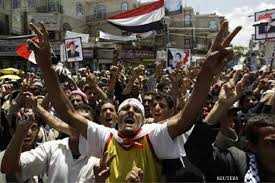Crisis in Yemen

April 12, 2015
Due to explosive political conflict, Yemen is on the brink of civil war, and in some aspects is already in the midst of one. Currently in power is a rebel group of Shia Muslims from the North of Yemen known as the Houthis. They seized power in January when they tried to reform the government by instituting a five person presidential panel, although the group still has yet to establish this system. They do not have full recognition as the official government, since they are a minority group. However, they control Sanaa, the capital of Yemen.
Taking control, they ousted President Abdrabbuh Mansour Hadi, who has fled to refuge in the city of Aden, which he declared to be the new captial. Mr. Hadi still has supporters and maintains a high-profile. Although attacked by the Houthis in late March, he is still the internationally recognized president. The ruler in place before Mr. Hadi still remains influential as well: Ali Abdullah Saleh.
The conflict in Yemen has dangerous implications for the rest of the world. Yemen has one of the most actives chapters of Al-Queda within its borders. This particular group is known to be very skillful and have world-wide power. Luckily, the Houthis and former President Hadi both oppose this volatile group. Another problem is that Yemen is located near a place on the Red Sea where shipments of oil pass through to be shipped to the rest of the world, and the civil conflict could potentially interfere with these shipments, especially with Al-Queda at large.
Currently, an unknown number of American citizens are trapped within Yemen’s borders. Initially they had gone over for humanitarian purposes, but now lack a means of egress. Lawsuits have been filed against the federal government considering that minimal effort has been made to rescue these people.

































